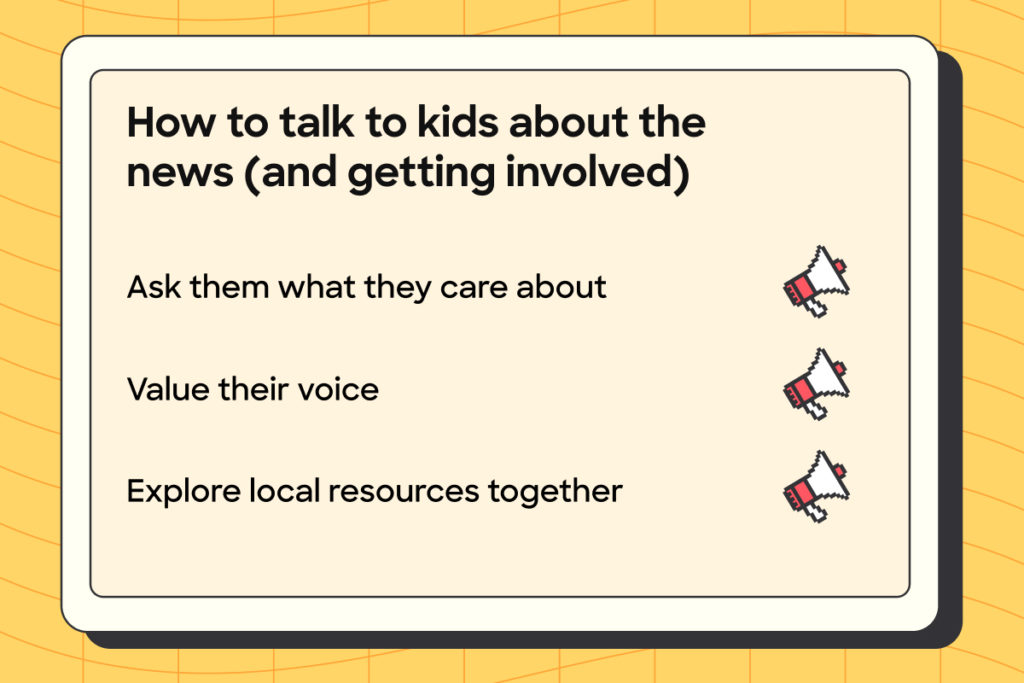How to talk to kids about the news
 Credit: Nick Velazquez / Mozilla
Credit: Nick Velazquez / Mozilla
Carlos Moreno is an activist, a graphic designer at CAP Tulsa and leads Tulsa's Code for America volunteer brigade. He has a master's degree in public policy and is the author of "The Victory of Greenwood" and "A Kids Book about the Tulsa Race Massacre." You can follow him on Twitter. Photo: Jamie Glisson
As the father of a teenager, I find myself worrying - and not just about their grades and how quickly they're growing up. Dating? Driver's permit? I'm not ready for this! I also worry about how my child, through the internet, is experiencing the world at a much quicker pace than I did.
When I was younger, I remember when the video of police brutally beating Rodney King surfaced. I watched the uprising that unfolded on the streets of Los Angeles on the news in real time. I was 15. That's six years after I, along with my classmates and teachers, watched the space shuttle Challenger unexpectedly explode on television. Both times, I didn't fully grasp what I'd just watched - my understanding came with help from my family and teachers and with time.
Now, with the web at their fingertips, children today are being exposed to a Challenger-level disaster in some part of the world in real time, every week it seems. I fear that without context and guidance to keep up with the internet news cycle, teens are becoming cynical, distrustful and isolated. So how can we, as parents, support and empower them to navigate it all?
 What good is marching in the streets or signing a petition going to do?'
What good is marching in the streets or signing a petition going to do?'Recently, I visited my teenage child's youth group at school and asked them how they're learning about the issues that affect them. I learned that most of the dozen high schoolers I spoke with were getting their information from social media accounts, like @mr_fish_news on TikTok's news fish. That, or they were too overwhelmed to care.
Through the internet, young people have access to information unlike any of the generations before them. But politically, my child feels completely helpless. I don't have any power or money," they said. The rich and powerful make all the decisions, so what good is marching in the streets or signing a petition going to do?"
I didn't have a good answer. Keep fighting? Try to avoid doomscrolling? Focus on taking care of those around you? It didn't seem like enough.
Learn from news literacy and advocacy organizationsThrough my own work as an activist, I'm reminded that there are always organizations who can help. To learn how I can better talk to my kid about the news, I found the list of resources provided by Media Literacy Now to be a great starting point.
I also recommend contacting your local library to find out what digital media literacy workshops they might have. There's also Generation Citizen, which offers resources across the U.S. for what it calls action civics," teaching a combination of media literacy and the inner-workings of local government.
In my community, the nonprofit Oklahoma Center for Community and Justice worked to create a safe space where young people in Tulsa can speak to each other after the 2020 protests prompted by George Floyd's murder.
Not only can families bring kids to these spaces to process difficult issues among their peers, but parents can also use all of these resources to educate themselves for having tough conversations about how what's happening in the world is affecting them.
How to talk to kids about the news (and getting involved)In today's political and media climate, as amplified by the internet for better or worse, it's easy to feel distraught. It's a place I find myself more often than I care to admit both as a community advocate and a parent.
Still, there are great resources that are made more accessible by the internet - and parents don't need to figure things out alone. There are organizations that we can learn from and that are constantly working to help meet our children's needs. This is what gives me a bit of hope.
Here's what I've learned that can help you talk to kids about news events:
1. Ask them what they care about. Your kids will surprise you with what they're already discussing with their teachers and friends. Make time to talk about complicated issues they care about or that are relevant in their lives. Read a book, search for trustworthy articles online or watch an informative video, then try to understand it together.
2. Value their voice. The word advocacy" means giving voice." Listen to what your kids want to express. Ask what voices or perspectives are missing from the conversation. Together, explore the voices of those who are most affected by the issue you're discussing. The internet makes it easier to find connections. This is one way to use it for good.
3. Explore local resources together. Activism is about building power. Go online to find local avenues - a school board, town hall or city council meeting, where teenagers can learn about issues going on in their own community and where they can express their views. Help write emails to the editor of a local paper. Ask for meetings with local elected officials. Trust me, you'll be surprised that your family has more power than you think!
What we see and hear amid the constant online news cycle can be discouraging. But the internet also makes plenty of resources and guidance accessible, so that parents are equipped to have tough but empowering conversations with their kids.
The internet is a great place for families. It gives us new opportunities to discover the world, connect with others and just generally make our lives easier and more colorful. But it also comes with new challenges and complications for the people raising the next generations. Mozilla wants to help families make the best online decisions, whatever that looks like, with our latest series, The Tech Talk.
 Talk to your kids about online safety Get tips
Talk to your kids about online safety Get tips The post How to talk to kids about the news appeared first on The Mozilla Blog.